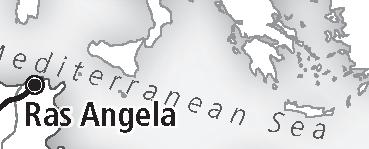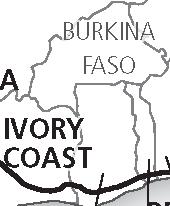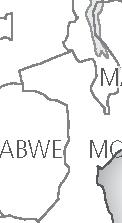MIND OVER MILES





























Flight Books, part of Flight Studio, a Flight Group company
In collaboration with Ebury Spotlight, an imprint of Ebury Publishing Penguin Random House UK One Embassy Gardens, 8 Viaduct Gardens, Nine Elms, London SW11 7BW
Ebury Publishing is part of the Penguin Random House group of companies whose addresses can be found at global.penguinrandomhouse.com
Copyright © Russ Cook 2024 Maps © Helen Stirling
Image credits:
ZUMA Press, Inc. / Alamy Stock Photo (Image 15, 16)
Associated Press / Alamy Stock Photo (Image 17)
Other images courtesy of Guus van Veen, Stan Gaskell, Harrison Gallimore, Jarred Karp, Markus Christ, Jamie Carson and Joshua Sampiero
Russ Cook has asserted his right to be identified as the author of this Work in accordance with the Copyright, Designs and Patents Act 1988
No part of this book may be used or reproduced in any manner for the purpose of training artificial intelligence technologies or systems. In accordance with Article 4(3) of the DSM Directive 2019/790, Penguin Random House expressly reserves this work from the text and data mining exception.
First published by Flight Books in 2024
www.flightbooks.com www.penguin.co.uk
A CIP catalogue record for this book is available from the British Library
Hardback ISBN 9781529945928
Trade Paperback ISBN 9781529950038
Printed and bound in Great Britain by Clays Ltd, Elcograf S.p.A.
The authorised representative in the EEA is Penguin Random House Ireland, Morrison Chambers, 32 Nassau Street, Dublin D02 YH68.
Penguin Random House is committed to a sustainable future for our business, our readers and our planet. This book is made from Forest Stewardship Council® certified paper.
I dedicate this book to my mum and dad.
I know I didn’t make life easy for you, but you gave me the strength and independence to become who I am today. I’ll always be grateful for everything you’ve done.
‘A journey of a thousand miles begins with a single step.’
– Laozi, Dao De Jing




















































































MOROCCO



TUNIS TUNISIA






























WESTERN SAHARA R




































A MAURITANIA AURITANIA AN A SENEGAL GUINEA NIGERIA
GUINEA GUINEA -BISSAU

SIERRA LEONE LIBERIA



















SOUTH SUDAN
ETHIOPIA

















NAMIBIA SOUTH AFRICA GHANATOGO











CAMEROON CONGO





DEMOCRATIC REP OF CONGO

ANGOLA
ZAMBIA


BOTSW


UGANDA KENYA
RWANDA BURUNDI



SOMALIA



TANZANIA MALAALAWWI
ZIMBABWE

LESOTHO
















ESWATINI












SEYCHELLES














MOZAMBIQUE






COMOROS















MADAGASCAR









MAURITIUS RÉUNION



I’m the third man on the back of a bike built for one. There’s nowhere to rest my feet. I’m cramped and tense. Sweating and dirty. Sick with fear.
On either side of me lies thick, impenetrable rainforest. Behind me lies a narrow, winding jungle path. Ahead of me? Who knows? I don’t know where they’re taking me. I don’t know what they intend.
All I know is that these two men are not my friends. I’m not on this bike willingly. Truth is, I don’t have a choice.
Already today I’ve pounded 50 kilometres of hard jungle road. I’ve escaped men with machetes, then hidden in the jungle while they circled me. I’m weak with dehydration and hunger. I’ve lost my friends. I’ve lost my sense of direction.
I’ve lost any hope that I’m going to get out of this in one piece. I truly think I’m going to die.
As I grip the body of that juddering motorbike, I can’t help but think how stupid I’ve been. I can’t help but think that I’ve let everybody down. I left England without properly fixing things with my mum and dad, and there was plenty that needed fixing. I imagine them receiving the news that I’ve gone missing. I imagine the intolerable worry and stress.
I picture them at home, weeks from now, hearing that my body has finally been found.
I wish I could speak to them, just once. I wish I could tell them that I regretted the way I’d handled things when I was younger.
I wish I could tell them that I was sorry.
I wish I could tell them that I loved them.
I’d always meant to. I’d always thought that, at some point, I’d reach out to my family and make amends for my mistakes. I think of those mistakes now, as the motorbike trundles over stony ground further into the darkness, and the voices of my captors become increasingly hostile.
Just over a hundred days ago, I set out from the southern tip of Africa. My mission: to run the entire length of the continent. Plenty of people told me it was madness. They told me it couldn’t be done. They told me I’d die.
Looks like they were right.
So now, with my fate in the hands of my two aggressive captors, I blink away the tears, close my eyes and think of home.
I think of family.
I think of loved ones.
I think of all the paths I’ve gone down to lead me to this point …
My paternal granddad was not one to follow the rules. My maternal granddad was a man of discipline and structure. I see myself in both of them, and both of them in myself.
My paternal granddad was born in 1944 and never knew his own dad, an American airman who found himself in the south of England during the Second World War. His mum brought him up on her own. Money was scarce and as a teenager he frequently found himself in trouble with the police. It was petty stuff – driving motorbikes around his hometown of Shoreham-by-Sea without insurance, getting into fights, running away from police, doing the usual kind of things that a certain type of teenager does. As a young man he took an apprenticeship as an engineer, but it didn’t pay much money so he also worked as a bouncer in a Brighton club. It was here that he met my nan. They married quickly and within a year my dad was born. My grandparents stayed married for 18 years, but my granddad was not a man who found satisfaction in the day-to-day of a normal life and so the marriage broke down. He then travelled the world, wandering through Australia and Asia, entering and leaving a string of relationships, until he finally met and married a Thai woman in 2004.
They returned to the UK, but even with his wandering days behind him, his distaste for the rules remained. Even now he’s always in trouble with someone about something. He doesn’t want to be told what to do. Eight years ago, he was diagnosed with terminal cancer and given a year to live. Even the disease couldn’t control him. He ignored the doctors’ instructions to stop drinking and maxed out his credit cards so that he had enough money to enjoy the life that was left.
Despite his rogue decisions that might be questionable to some, my grandad is also a very lovable man and very loving himself. I’ve never seen him so distraught as when remembering his dogs who have died. My granddad has taught me that it’s possible to be big-hearted and stubborn at the same time.
My maternal granddad, who lives 600 miles away, has been less present in my life. He joined the RAF at a young age and remained in the service until he retired as a warrant officer, the top rank an NCO can achieve. His job required him to travel when my mum was young – Gibraltar, Germany, Wales – before finally settling down in his hometown of Forres in Scotland. He was old school: traditional, disciplined and well respected. He was a military man who excelled in sports. He was a fast runner and good at football.
When I was 15 years old, my parents sent me to stay with him in the wilds of Scotland for a summer. I’d been misbehaving. I guess they needed some respite, and they felt that my disciplinarian granddad would be a good influence on me. I didn’t want to go. Like most 15-year-olds I wanted to be going to parties and
drinking with my mates down the park. None of that was happening in this little Scottish town.
One day he announced that we were going on a long bike ride. My nan presented us with a packed lunch of tuna sandwiches. I didn’t really like tuna, and I said so. Another grandparent might have mollycoddled me. No chance. It was tuna sandwiches or nothing. And it was a long ride through the woods or nothing. My granddad was a serious guy and I didn’t complain. Something about him inspired respect. I responded to his discipline. Which was unusual, because the young Russ Cook was extremely bad at doing what he was told.
• • •
I was a bright enough boy when I was very young, and good at school. My end-of-year reports from the Vale Primary School in West Sussex were generally very positive. I had lots of friends. I lived for football; I played it at school, at weekends and at after-school training sessions. In fact, I played football four or five times a week until the age of 16. Being part of a team with my friends gave me some of my best childhood memories. My parents did a great job of facilitating my passion for football and sport. David Beckham was my idol and I dreamed of being a professional footballer like him. Maybe it could happen? After all, I was captain of the school team and played for Worthing United. Being small, fast and left-footed I started out on the wing before moving into the centre – but although I was a decent enough little player, I was never good enough to be the next Becks. My dream of being a pro player would remain just that: a dream.
Still, I was athletic and energetic and whenever I was out and about with my dad, he’d give me little challenges. ‘Run to the lamppost and back and I’ll give you 10 pence.’ ‘Run up that hill and I’ll give you 20 pence.’ I suppose I was motivated in part by the pocket money. Really, though, it was my dad’s good opinion that mattered to me. I wanted to impress him. I wanted him to be proud of my little achievements.
My dad was a tool grinder. He bought my grandad’s old tools and set up a workshop. It was a dark, grimy, industrial place stinking of metal and sweat. Dad would come home from work covered in metal dust. I don’t remember seeing much of him in those days, but I remember looking at how big and strong he was. Grinding tools was hard, relentless work. My dad was good at it and he took his role as a provider for the family very seriously. I knew, though, even as a small kid, that I didn’t want that to be my future. My mother was a full-time mum alongside working part-time jobs and she was amazing. She was nurturing, attentive and very organised, but she had her hands full with three boisterous boys. And she had her hands full with other things too.
One Christmas Eve, our fairly normal family life was ruptured. Suddenly, my dad, without any warning or reason, started to behave strangely. He called several ambulances, telling them that people were coming to get us. He stalked round the house turning off anything electrical, including the TV and radio, because he thought mysterious figures were trying to contact us. This sudden psychosis meant he had to be sectioned. It predictably led to strains in the household. And I knew that my dad’s behaviour had
changed somewhat, now that he was on heavy medication for his mental health issues.
It affected me. I would wake up in the middle of the night, crying. I lacked the tools to process what was going on around me in a healthy way. This was before conversations about mental health were open and widespread in society, as they are today. I didn’t know what to do with these feelings, so I did nothing with them. I kept them inside. In my young mind I decided on some level that I should not allow myself to linger around these emotions. I needed to move on. I didn’t understand that negative emotions, left unprocessed, often appear in different and unwelcome manifestations later on.
My brother Ben is ten months older than me, my brother Andy is nearly two years younger. We got on well as kids, and I have lots of great memories of us together. Some highlights include playing indoor football in the lounge (my mum was never a fan of this one) or the floor is lava, and making dens in the woods.
We also had the usual brotherly fights pretty frequently, and as we got older, they got more and more real, particularly between me and my older brother. When I was 14, we fell out very badly. I was very spiteful and hateful towards my brother at that age and in retrospect, it was the beginning of me withdrawing from my family.
The transition into adolescence is a difficult one for most young people. In many respects I was no different to anybody else my age. As my freedom increased, my responsibilities grew. I gained more independence from my family, which I appreciated, but I also had to choose my GCSEs and, like many teenagers, I felt the foreboding of an unknown future. I looked at my mum and
dad and didn’t see people living a life I wanted to live. That realisation had a profound effect on me. This made me feel reluctant to listen to anything they had to say.
It is not unusual for a child to clash with his or her parents as they negotiate adolescence. My behaviour, though, was extreme. I feel ashamed, now I look back through the lens of adulthood. My parents’ expectations were not unreasonable. They wanted me to speak politely to them. They wanted me to treat the house, and the family, with a basic level of respect. The 14-year-old me failed to understand the importance of this. All I heard was instructions rather than explanations. I saw no reason to follow rules that I didn’t understand. Maybe it was a trait I inherited from my paternal granddad. Maybe it was all my own doing. Either way, it led me down a difficult path. When my mum told me that I had to be home by a certain time, I’d ignore her and come back whenever I wanted to. If they left the house for a few days, I would throw big parties and trash the whole place. I guess none of these behaviours were particularly unusual in isolation, but cumulatively, they developed into a lack of respect on my part for my parents that eventually led to the complete breakdown of the relationship.
At school, I was placed in the gifted and talented set and was expected to do really well. However, my GCSE courses coincided with this change in my behaviour and my academic performance soon deteriorated. I told myself I didn’t care. Exams seemed to me to be an integral part of a system that insisted I had to follow a particular path if I wanted to succeed. Pass this exam to get this job. Get this job to have a nice life. The system held no attraction
for me. I didn’t want to be constrained by its rules. I felt quite certain I could fail at everything everybody told me I had to do, and still enjoy my life. What the hell did anybody else know? I wanted to prove people wrong simply for the sake of proving people wrong.
I feel conflicted when I remember my teenage self. The path I chose back then turned out okay for me in the end, but I’m well aware that I was very fortunate to turn into this version of myself; it would have been all too easy for me to have followed a selfdestructive path and turned into someone completely different. And I very nearly did.
I may not have been interested in the approval of my parents any more, but I was very interested in the approval of my peers. I just wanted to be one of the boys. Football became more about partying with my teammates than about the game itself. I craved their validation. I wanted to wear the same clothes, have the same hairstyle, hang out at the same parties. And I wanted no involvement from my parents because I felt that they were an obstacle to the way I wanted to live my life. My mum would ask me perfectly normal questions – ‘Will you be home for dinner?’ ‘Can you join us for a family event at the weekend?’ My response would not be that of a normal human being: I would give rude one-word answers. I said horrible things when she pointed out that I was living under her roof. I’d tell her it wasn’t hers, it was Dad’s, because he was the one that paid for it all. I would be purposely divisive and sabotage things to emphasise how much I felt our family sucked. And if, of all things, my parents presumed to offer me any advice, my response
would be particularly contemptuous and savage. It embarrasses me to recall the things I said. ‘Why would I take your advice? You’ve never done anything with your life. Shut your mouth.’
I can’t imagine how hard it was for my parents to receive this relentless barrage of brutal insults and dismissiveness. What I do know is that their natural response was to fight the fire of my disdain with the fire of their own anger and outrage. My unpleasant responses triggered vicious arguments. ‘We’ve never done anything with our life? You’ve never done anything with yours, and you never will.’ No doubt my parents felt so heavily disrespected that they thought it necessary to humble me in some way. With hindsight I can understand their reaction. At the time, these comments only bolstered my determination that I needed nobody else to help me find my way in life, least of all them. I wouldn’t let them make me feel like I was never going to do anything in my life. I became filled with resentment and fury, but also with a determination that I would show them how wrong they were if they thought I couldn’t live life on my own.
And so, at the age of 17, while I was still at college doing my A-levels, when the arguments had become too savage and the mutual resentment too difficult for any of us to live with, I moved out.
It was a traumatic time for us all. In my head I had framed the situation as me versus them, but they weren’t monsters. They didn’t want to see me crash and burn. My presence had just become too much for my family to bear.
When I was out of the house one day, my parents moved my stuff over to my granddad’s and locked me out. I recovered my things and returned home. I remember creeping round to the back of the house when it was dark outside and looking in through the window to see my dad standing in the kitchen. A mad rage boiled inside me – rage that I now see had been my constant companion since my early teens – and I head-butted the window.
The glass didn’t shatter but my dad looked terrified. It’s not a good feeling to have your dad stare at you in that way. I think I knew then that they really meant it when they said I couldn’t live under their roof any more.
I remember feeling terribly betrayed by this turn of events but determined that I would prove my parents wrong. They thought I couldn’t live alone? They thought they could humble me by stamping out my desire to live my life the way I wanted? Bring it on. I would show them, and everyone, that I was completely self-reliant.
I walked into an estate agent and said, ‘I need a flat.’ The cheapest available was £425 a month. I said, ‘I’ll take it.’
But now I needed money.
I didn’t claim any benefits. I was too proud for all of that. My parents and grandparents had contributed to a small fund since I was born. We found ourselves in a complicated situation, but deep down they wanted the best for me so they gave me this money when I moved out. It helped set me up with the basics but once it was spent I had no other income.
I was not afraid of hard work, however. From my paternal granddad I’d learned a disrespect for the rules, but from my maternal granddad I’d learned an ability to graft. At the age of 12, I had a paper round. At 15, I took a weekend job in a café. At 16, I started doing cleaning jobs. I would get up a 4.30 in the morning to clean at the local supermarket. I had another cleaning job in the evening after school. When it became apparent that I really was going to have to back up my words with actions and earn my own money if I wanted to prove my self-reliance to my parents and to the world, I started a little business cleaning people’s houses. I printed out flyers, which I distributed through letterboxes and behind windscreen wipers. My attendance at college plummeted to well under 50 per cent so that I could earn enough to make my rent. I was always skint. Many was the time that I presented my card at Lidl and whispered a silent prayer that it would work. It often didn’t.
I was proper excited when I received the keys and first walked into that tiny one-bedroom flat. Inwardly, I was daunted. I’d made
such a big deal in front of my parents of my ability to be autonomous, and I now had to prove myself. My flat became a party place at the weekends, but during the week I had to work my cleaning jobs as much as possible while attending college as often as I could. For a while my motivation not to return home sheepishly gave me the energy I needed. The time came, however, when things started to slip.
I finished college. Now that I was free to start a full-time job, I decided I wanted to try my hand at sales. It struck me as being the best-paying job that required no experience or qualifications. I took a position in recruitment sales. I soon realised, in that provincial Wolf of Wall Street environment, that the way to please your boss was to have the phone constantly to your ear. I would make 150 calls a day, and for a while I quite enjoyed the novelty of that work-hard-play-hard vibe.
The novelty, however, soon wore off. It was a dog-eat-dog world. Nobody had any friends. Everybody was out for themselves. And it was relentless. I’d wake up early, rush to work and make cold calls for 12 or 13 hours. Back home, I’d collapse, exhausted, eat some shit food, fall asleep and repeat the same process the next day and the next. I grew to hate it: the repetitive grind, the sense that I was doing nothing with my life despite my grand claims to my parents.
I found relief from the monotony of my daily life in two pursuits. One was drinking. Come the weekend, I’d binge drink with my friends, throwing beer down my neck as a way of forgetting about the drudgery of my day job. My Fridays, Saturdays and Sundays were routinely lost at the bottom of a bottle.